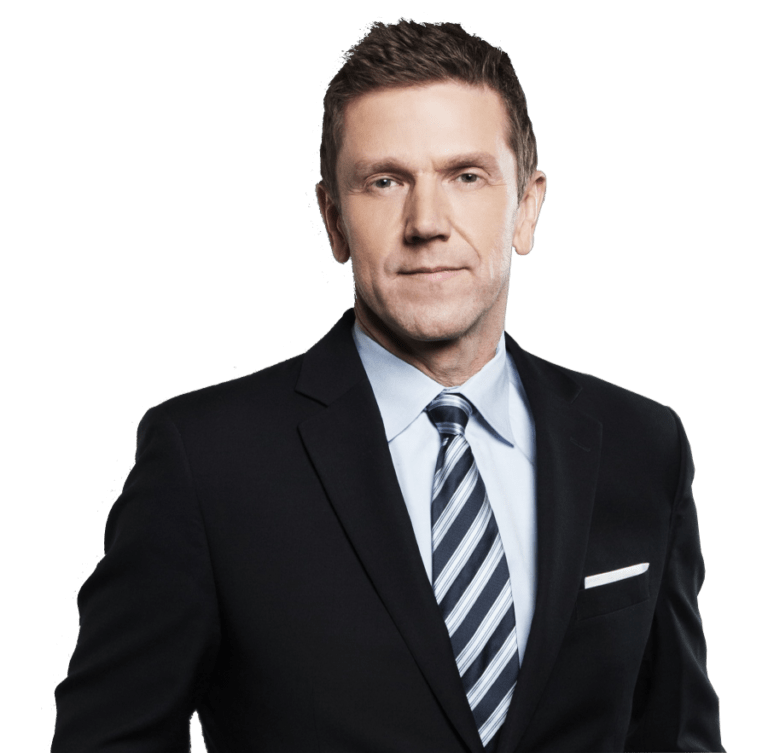
Our team does a lot of retirement number crunching for Canadians. To be more specific; we do a lot of cash flow forecasting where we show white-collar families what it will cost them to retire. Understanding the cost of raising a child in Canada. Knowing how much they can afford to spend each year in retirement and what will be left when they die at age 100.
We consider a variety of factors:
- Their career income and how long they will work
- When the mortgage will be gone
- CPP and OAS benefits
- Pensions
- Income tax levels
- Inheritances
- Plans for the big home they live in
- Investment portfolios, investment returns
- Savings habits today and spending levels during their lifetime
We provide complete and well-rounded scenario analysis that help the individuals and families “see into the future” and therefore make smarter financial decisions today. We answer the big question: “Can I afford to retire?” and we’ve been doing it for 25 years.
I think every Canadian needs such a cash flow forecast for their basic finances. I call it the “plumbing report” because it links all your goals and resources together to see what you will achieve. Cash flow planning is the blood of your financial body.
We do two of these reports a week for professional families somewhere in Canada (if you want one, call us). For a single fee, we will show you the future in the form of a dashboard – something you need to see – read on.
When you do a lot of these reports over a few years, you start to identify trends. I see many trends concerning the finances of Canadians, and today I am writing about a big one. Your kids and what they are doing to your financial plans for retirement.

Your Support for Your Kids is Destroying Any Hope for The Retirement You Want
Let me cut to the point. To retire with the quality of life you have while you are working and earning the significant incomes, you likely need, $1.5 million to $3 million in savings at the start of retirement. This plan is excluding your home and cottage.
To get to this level of savings, you need to be a damn good saver for at least 20 years. This plan means maximizing your RRSP, your Tax-Free savings account AND MORE. Possibly buying a rental property, owning company stock or saving more money in regular taxable investment accounts.
The savings process needs to start heavily by age 40 and be consistent and growing into your 50’s. Realistically you should expect to retire at 65 because you need the extra time to save. Very few of us will have Lotto 6/49 to rely on, or the death of our wealthy baby boomer parents to save the day. They are doing a damn good job of blowing through everything they accumulated too!

But This Story is About Kids! The High Cost of Raising Children in Canada.
How many kids did you have? I have written previously that any more than two children makes your ability to retire virtually unachievable unless you are rich. People with three or four kids are facing as much as twenty years of university costs for potentially multiple degrees per child, four wedding costs and four children’s home deposits. If this isn’t financial doom for most Canadians hopes of retirement, I don’t know what is.
Let me slow down and be more specific. Here’s precisely what we see in our retirement planning practice across Canada. Couples have children later in life – first child around age 30 and third children around age 38. This lifestyle means the children hit university age when the parents are age 48 to age 56.
Parents in their 30s do some saving through RESPs for kids’ schooling, but the reality is they don’t max-out the contributions because they cannot afford to. Even if they do, the RESP plan money is only covering 2-3 years of university anyway.
Parents often have to pay out of pocket for the 1-2 final years of the first degree, and more or all of any subsequent degrees. Multiply this by several children, and it is not uncommon for parents in their 50s and early 60s to be running up six-digit balances on their lines of credit paying for university costs!
At the same time, the parents are closing in on the traditional retirement at age 60. Their parents retired at 58! Yet today’s boomer is now 58 and still has $150,000 on their line of credit resulting from their kids’ educational cost overflow. The $200,000 on the mortgage that should have been long gone by now, no Tax-Free savings accounts, no Hydro or teacher’s pension and inadequate retirement savings. When it comes to the cost of raising children in Canada, there is still the cost of potentially three weddings to contribute to and don’t you want to help the kids buy a home someday?
So Canadian white-collar families are spending their age 50-60 period treading water by paying important children’s costs of school instead of ploughing large chunks of money into new savings for their retirement. Retirement savings have essentially been forgotten about as children and mortgage, and lifestyle spending has swallowed up much of the paycheques for 20 years.

So What Will Retirement Look Like for White Collars in Canada?
If you married a school principal with a defined benefit pension or your career is with hydro, and you also have a pension, congratulations you may be the only white collars to retire “on time” as your parents did.
However, the rest of us need to be realistic about facing a delayed retirement. If I just described you above then sit your spouse down and have a heart to heart about potentially working to age 70. Downsizing your big home rarely helps enough, and you are age 50 now it is too late to save enough. You love your kids, so of course, you are going to help them to the end. But who’s going to take care of you?

Let’s Talk About Your Financial Goals
The solution starts with your retirement plan calculations – call my team and get an assessment of where you are today. Do it now – you aren’t getting any younger, and this won’t get easier by waiting. As a Chartered Professional Accountant (CA), we know math, your finances and retirement planning.
No stockbroker is going to save the day by buying you a miracle stock. Value in financial advice in Canada is goal-based math planning of your cash flows to age 100 and reviewing different scenarios. Everyone is well served by this dashboard of your financial facts analyzed to show you what is possible and what is not possible.
Kurt Rosentreter, CPA, CA, CFP, CLU, CIMA, FCSI, CIM, FMA, TEP is President of Upper Canada Capital in Toronto and a Senior Financial Advisor & Portfolio Manager with Manulife Securities Incorporated. He is the author of seven books on personal finance and a money management course instructor for accounting associations across Canada.
As well as the past co-founder of the billion-dollar wealth management practices at one of Canada’s “Big Four” global public accounting firms. With more than twenty-five years of professional experience in Canadian wealth management, Kurt is a popular public speaker nationally and can be regularly found in the national newspapers as an expert on personal finance.
Kurt has published more than five hundred articles on money in the last two decades, and his hard-hitting newsletters are popular with Canadians. Kurt, along with his partner Frank Valicek, oversees a national practice of wealth management clients where their team of ten assist with all matters of money. Visit www.kurtismycfo.com.




